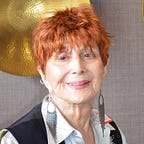Doctors Iffy on Birth Control Under Age 16
WASHINGTON: February 3, 1972: Mayor Walter Washington on August 13 signed a City Council regulation authorizing doctors at D.C. clinics to dispense “birth control information, services and devices” to any woman regardless of her age and with or without her parents’ consent.
This is not likely to mean, however, that any 12-year-old can walk off the street and get birth control pills. District clinic doctors, with few exceptions, have strong objections — legal and medical — to providing girls under 16 with The Pill, the loop or other contraceptives.
The no-age-limit, no-parental-consent regulation was passed against the recommendation of an administrative ad hoc committee composed of 10 doctors of the Health Service administration, including Dr Charles R. Hayman, associate director, and Dr. Florence J. Hicks, special assistant to public director Dr. Raymond L. Standard.
The committee specifically advised that “family planning, information and service,” be provided unconditionally only to women over 18. Girls aged 16 and 17 could be treated without parental consent provided menstruation had started, the committee said, and those under 16, only with parental consent unless there had been a previous pregnancy.
The recommendation was supported by Phillip Rutledge, director of the Department of Human Resources, and by Mayor Washington. But the City Council, led by Dr. Henry S. Robinson, Jr., chairman of the health and welfare committee, rejected the restrictions. Dr. Robinson said, in a memo to Council members on June 1, 1971, “We are convinced the city not only may provide contraceptive services to (all) minors, it MUST provide them . HEW has issued regulations pursuant to the (Social Security) Act which state in part that family planning must be available without regard to marital status, age, or parenthood.”
Reactions from Washington clinic doctors range from mild to vehement. Said one clinic doctor who asked not to be identified, “Medical ethics are our first consideration, not what other human beings tell you to do.”
Dr. John Algee, who is chief of the area C and D community health centers, stated flatly, “I don’t care what the city regulations says, the District can’t pay for anybody’s malpractice suits.”
The question of whether doctors can get into legal difficulty by treating minors without parental consent has been debated at length. On July 10, 1970 Hubert B. Pair, action corporation counsel, advised, “No medical treatment should, except in cases of emergency, be rendered to any minor without express consent of the minor’s parent or guardian.” The opinion was based largely on the Bonner case, in 1941, when parents sued a doctor, and won, because their teen-age son underwent a skin graft without their consent.
Gilbert Gimbel, a lawyer in the Mayor’s office, admits that “The Bonner Case is still law and until another case comes along, you really haven’t got the problem completely answered.” However, the corporation council and the City Council now contend that the new regulation provides adequate legal protection for health clinic doctors.
Legalities aside, birth control devices for girls under 16 are a touchy subject. Dr. Algee asks, rhetorically, “If you had a 13-year-old daughter would you like me to give her birth control pills without your knowing it?”
Dr. Edward R. Wernitznig, director of the District’s maternity and infant care project, echoes Dr. Algee. “I don’t care what the Mayor has signed,” he said. “I don’t go along with it. As a father, a grandfather and a Catholic, I’m not giving birth control devises to little girls.”
Dr. Lillian Wheeler, of the Potomac Gardens health clinic, is in favor of the regulation. She’s “not keen on having 12-to-15-year-olds pregnant,” she said. “I would rather prevent a pregnancy than interrupt a pregnancy.”
At the Arthur Capper health clinic, Dr. Zung Za Lee said she is reluctant to prescribe The Pill or the loop for girls under 16. The loop, she found, “is no good for those who haven’t been pregnant. It causes cramps, bleeding and infections.” She prefers The Pill but not for girls under 16 because, she says, it stunts growth. She explained that girls stop growing shortly after they being menstruating. The Pill will stop growth prematurely when taken by an immature girl.
So far, few girls under 16 have come into the clinics without their mothers. Some doctors feel this is because the new regulation has not had much publicity yet. Others, like Dr. Algee, believes “girls this young aren’t coming in for contraceptives because they want to have babies.”
Maxine Gordon, a social worker who counsels girls in three District health clinics, is inclined to agree. “It’s a peer group thing for girls 13 to 16. Their friends have babies and they feel left out. A baby is a very cute object.”
In two years, Mrs. Gordon has seen an upswing in pregnancies among girls between 14 and 16. Forty per cent of the 14,745 babies born in Washington in 1970 were illegitimate. Of these 5,898 illegitimate children, 32 per cent were born to women between the ages of 17 and 19, and 18 percent to girls under 16, according to Dr. Robinson’s memo.
Despite the original misgivings on the part of the Health Services Administration, Dr. Standard is instructing his doctors to “implement” the new regulation.
Doctors say they will “obey” according to the dictates of their consciences and medical diagnoses, neither of which is likely in all cases to coincide with the new City Council regulation.
[This article originally appeared in The Washington Daily News, February 3, 1972 as Doctors iffy on birth control under age 16. #7 in a collection of more than 100 newspaper articles by Judy Flander from the second wave of the Women’s Movement reflecting the fervor and ingenuity of the women who rode the wave.]
